Precision medicine is changing healthcare by focusing on each person’s needs. It uses artificial intelligence to analyze data for better diagnoses and treatments. This method considers a patient’s genes, biomarkers, and lifestyle for more effective care.
The mix of precision medicine and AI is making healthcare more personal. About 60% of health issues come from lifestyle and environment, while 30% are genetic. This approach helps doctors give better care and save money. Precision medicine is set to change healthcare for the better, with big effects for years to come.
Key Takeaways
- Precision medicine provides personalized healthcare solutions by analyzing a patient’s unique characteristics.
- Genomic testing is a key part of precision medicine, helping doctors understand a person’s genetic makeup.
- The blend of precision medicine and AI is expected to speed up personalized care in healthcare.
- Almost 60% of health issues come from lifestyle and environment, showing the need to consider these in treatment plans.
- Precision medicine could make diagnoses more accurate and cut healthcare costs by reducing fraud.
- This model uses genetic, environmental, and lifestyle data to tailor healthcare, leading to better care.
Understanding the Fundamentals of Precision Medicine
Precision medicine aims to give each patient a treatment plan that fits their unique needs. This includes looking at their genetic makeup and medical history. It needs a lot of data, like genomic info and biomarker analysis.
Pharmacogenomics is key in precision medicine. It helps figure out how genes affect how we react to drugs. This way, doctors can create treatment plans that are just right for each patient.
Key Components of Precision Medicine
- Genomic testing
- Biomarker analysis
- Phenotypic characterization
Precision medicine is different from old-school healthcare. It focuses on each patient’s unique traits for personalized care. This method could lead to better health results and lower healthcare costs.
Genetics are very important in precision medicine. They help find specific genetic changes that guide treatment choices. With tailored treatment plans, doctors can make patients’ health better and lower the chance of bad reactions to drugs.
The Science Behind Genomic Testing and Analysis
Genomic testing is key in precision medicine. It looks at a patient’s genes to find specific changes. This helps doctors make better treatment plans and improve health outcomes. Precision diagnostics are important because they help doctors diagnose diseases more accurately and create targeted treatments.
The human genome has over 3 billion DNA base pairs. There are about 3–5 million genetic variants in every human genome compared to the reference sequence. Next-generation sequencing can sequence a genome in hours. This gives a lot of data that needs to be sorted, processed, and analyzed for clinical use.
Some main uses of genomic testing are:
- Identifying genetic mutations linked to rare diseases
- Finding tumor recurrence by sequencing DNA in blood (ctDNA)
- Helping plan treatments for inherited cancer syndromes
Healthcare professionals use genomic testing and precision diagnostics to create personalized treatment plans. These plans consider a person’s unique genetic makeup, environment, and lifestyle. This approach could change how we prevent and treat diseases, mainly in high-risk groups.
| Genomic Testing Application | Description |
|---|---|
| Rare Disease Diagnosis | Identifying genetic mutations associated with rare diseases |
| Cancer Treatment | Detecting tumor recurrence and informing treatment strategies |
| Personalized Medicine | Developing targeted treatment plans based on an individual’s genetic profile |
Implementing Precision Medicine in Clinical Practice
Precision medicine is changing healthcare by giving personalized care. It uses genomic data, electronic health records, and patient data. This helps doctors make treatment plans that fit each patient’s needs.
Studies show precision medicine is working well, mainly in fighting cancer. Doctors can now find and treat cancer more accurately. The All of Us Research Program by the U.S. National Institutes of Health aims to help diverse populations through data.
Key steps in using precision medicine include:
- Linking it with electronic health records for better access to data
- Collecting and analyzing patient data to guide treatment
- Creating treatment plans based on genetic info and other factors
Using precision medicine in healthcare is expected to make treatments better. It helps doctors choose the right treatments for patients. This could lead to better health outcomes and save money. As precision medicine grows, it will likely change healthcare a lot, making treatments more precise and effective for many diseases.
| Aspect of Precision Medicine | Description |
|---|---|
| Genomic Testing | Identifies genetic variations associated with disease |
| Electronic Health Records | Enhances access to genetic and medical data |
| Personalized Treatment Plans | Tailored to each patient’s unique characteristics and needs |
Breakthrough Applications in Precision Oncology
Precision oncology uses genomic data to fight cancer. Targeted therapy is a big part of it. It aims to treat cancer by focusing on specific genetic mutations. This could change how we treat cancer, giving hope to those with hard-to-treat diseases.
Some key uses of precision oncology include:
- Imaging-guided precision medicine in oncology, discussed in 34 articles by 282 authors.
- Radiomics-based nomograms for non-small cell lung cancer, combining rad-score with clinicopathological factors.
- Hybrid 18F-FDG PET/CT imaging for muscle-invasive bladder carcinoma, supporting precision medicine.
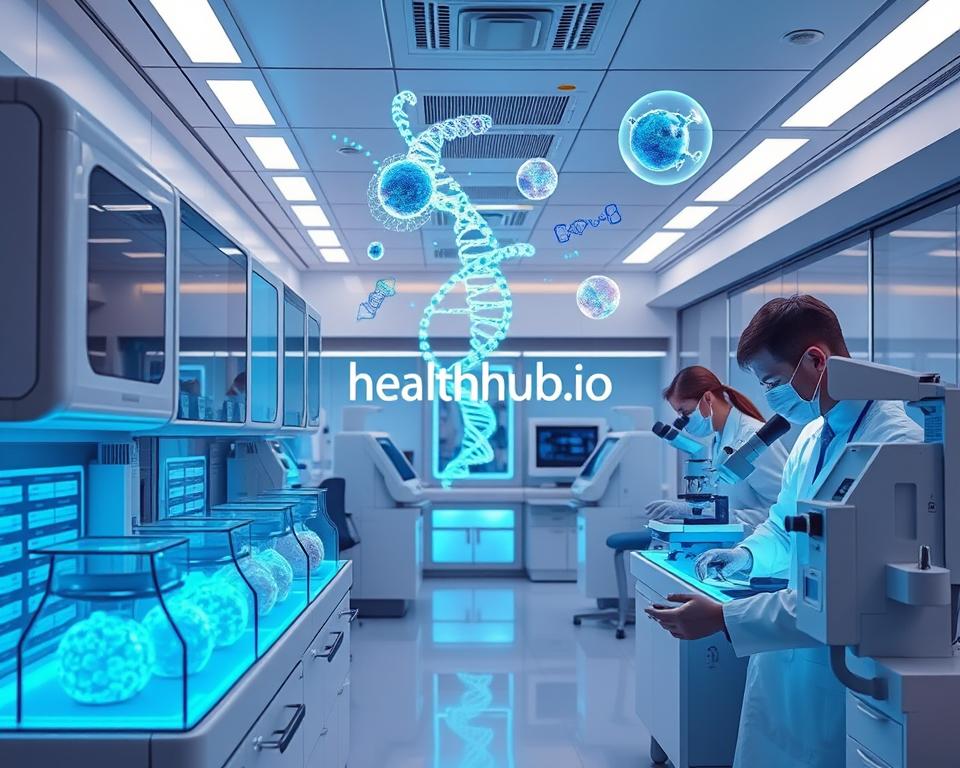
Precision oncology has grown a lot in recent years. Research is using AI to make imaging tasks more precise. The cost of genetic sequencing has dropped from $3 billion in 2003 to a few thousand dollars today. This makes precision oncology more available to patients worldwide.
Vivek Subbiah, MD, believes precision oncology could change cancer treatment. Including more patients in trials can make results more reliable. As it grows, we’ll see new treatments like antibody-drug conjugates and CRISPR-based therapies.
Pharmacogenomics: Tailoring Medications to Your Genetic Profile
Pharmacogenomics studies how genes affect how we react to medicines. It’s changing how we get and take our meds. Doctors can now choose the right medicine and dose for each person based on their genes.
Recent studies show pharmacogenomics can lower the chance of bad reactions and make meds work better. For example, genetic tests can spot who might have bad reactions to certain drugs. This helps doctors adjust doses or switch meds to keep people safe.
Understanding Drug-Gene Interactions
When our genes meet certain medicines, it can change how we react. This can make the medicine not work as well or even cause bad side effects. For instance, some people’s genes might change how their body breaks down certain drugs.
Benefits of Genetic Testing for Medication Response
Genetic tests for how we react to meds can really help patients. They help doctors pick the best meds and doses for each person. This means better results, fewer bad side effects, and safer care.
Some key benefits of genetic testing for meds include:
- Improved efficacy: Tests help find the best meds for each person based on their genes.
- Reduced risk of adverse reactions: Tests help doctors avoid meds that might cause problems.
- Enhanced patient safety: Tests help doctors make safer choices, leading to better care and outcomes.
Advanced Diagnostic Tools in Precision Medicine
Advanced diagnostic tools are key in precision medicine. They help doctors find specific biomarkers and tailor treatments for each patient. Precision diagnostics uses genomic data to spot diseases. Genomic testing looks at a patient’s genes to find genetic changes.
Some top tools in precision medicine include:
- Genomic panels that check for diabetes risk
- Wireless systems for remote healthcare
- Genomic-linked imaging, like PET scans
These tools can cut healthcare costs by guiding patients to the best treatments.
With precision diagnostics and genomic testing, doctors can create targeted therapies. This leads to better care and health outcomes. It’s changing how we get medical care, making it more personal and effective.
Overcoming Challenges in Personalized Healthcare
Personalized healthcare aims to tailor treatments to each patient’s unique needs. But, it faces several challenges. One big issue is the high cost of personalized treatments, like CAR-T cell therapy for some cancers.
Another challenge is keeping patient data private. With more use of electronic health records and genomic data, protecting this information is key. Improving healthcare provider education is also vital. It helps them use personalized healthcare effectively.
Some strategies to tackle these challenges include:
- Implementing cost-effective personalized medicine strategies
- Developing secure data storage and management systems
- Providing ongoing education and training for healthcare providers
Recent studies show personalized medicine could outperform traditional methods. This highlights the need to tackle these challenges. By doing so, personalized healthcare can become a reality for everyone.
The success of personalized healthcare relies on overcoming these obstacles. By working together, we can make precision medicine a reality. This will lead to better patient outcomes.
| Challenge | Solution |
|---|---|
| High costs | Cost-effective personalized medicine strategies |
| Data privacy concerns | Secure data storage and management systems |
| Lack of education | Ongoing education and training for healthcare providers |
The Role of Artificial Intelligence in Precision Medicine
Artificial intelligence is changing precision medicine. It helps doctors analyze lots of data for better diagnoses. Machine learning finds patterns in patient data, leading to better treatment plans.
Precision medicine tailors treatments to each person’s genetic makeup. This is key in fighting diseases. AI is making healthcare better, giving hope to those with hard-to-treat diseases.
Studies show nearly two-thirds of doctors see AI’s benefits in healthcare. AI’s role in precision medicine includes:
- Machine learning: used to analyze large amounts of data and identify patterns and trends
- Predictive analytics: used to predict patient outcomes and identify possible risks
- Diagnostic imaging: used to analyze medical images and diagnose diseases more accurately
But, there are challenges to using AI in precision medicine. We need big, well-annotated datasets. There’s also the risk of AI bias and the need for clear data ownership. Overcoming these will unlock AI’s full power in precision medicine.
The future of precision medicine is bright, with AI at its core. As we learn more about the human genome and AI’s role, patient care will improve. We can expect better treatment outcomes.
| Application | Description |
|---|---|
| Machine Learning | Used to analyze large amounts of data and identify patterns and trends |
| Predictive Analytics | Used to predict patient outcomes and identify possible risks |
| Diagnostic Imaging | Used to analyze medical images and diagnose diseases more accurately |
Shaping Tomorrow’s Healthcare Through Precision Medicine Innovation
Precision medicine is leading the way in changing how we care for patients. It uses new technologies like artificial intelligence (AI) and genomics. This approach is key to creating treatments that fit each person’s needs.
AI and precision medicine are changing how we fight diseases. AI tools help doctors understand patient data, like genes, to make better plans. This means we can find diseases sooner and treat them more effectively.
As healthcare keeps evolving, precision medicine and new tech will make it better. We’ll see more personalized care that’s effective and easy to get. This change will help patients and improve health for everyone.
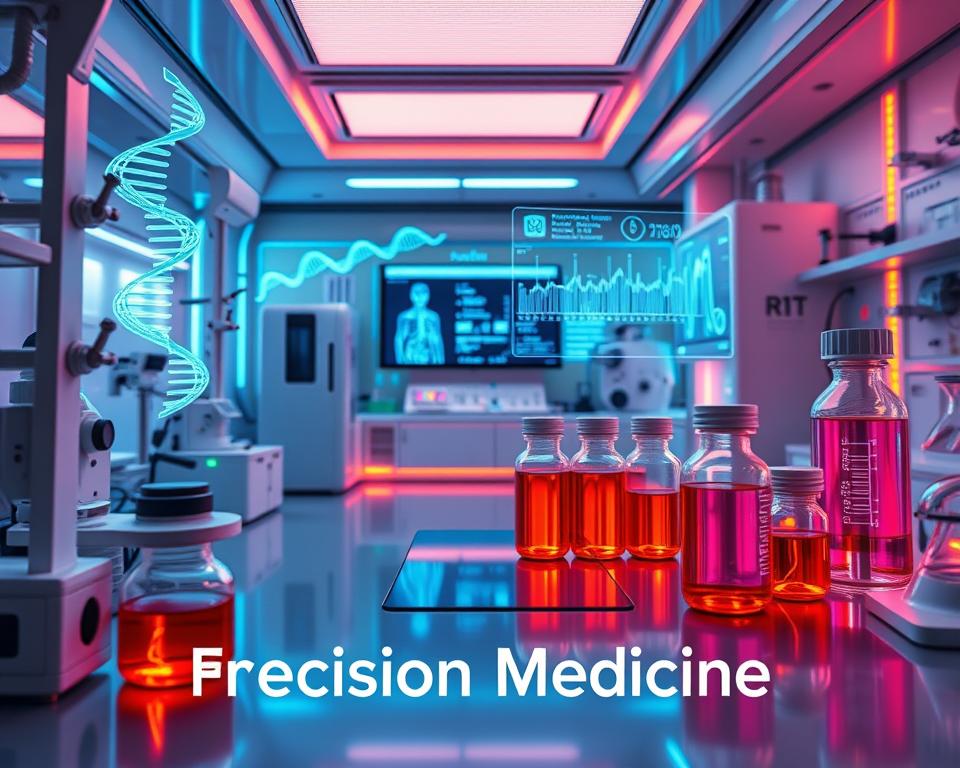

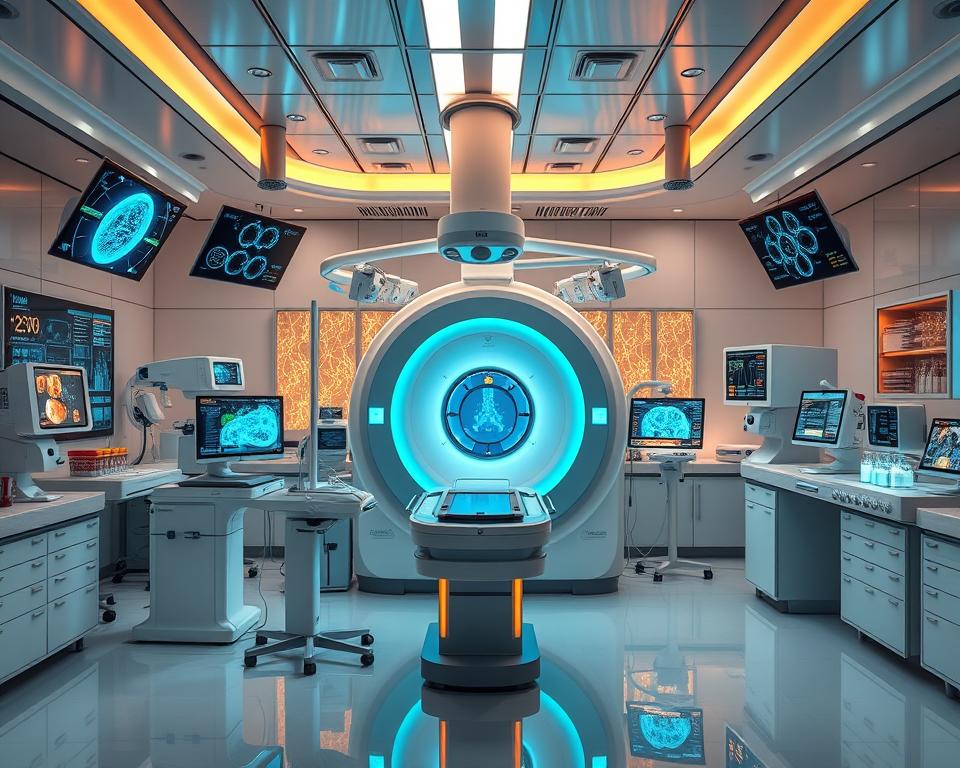
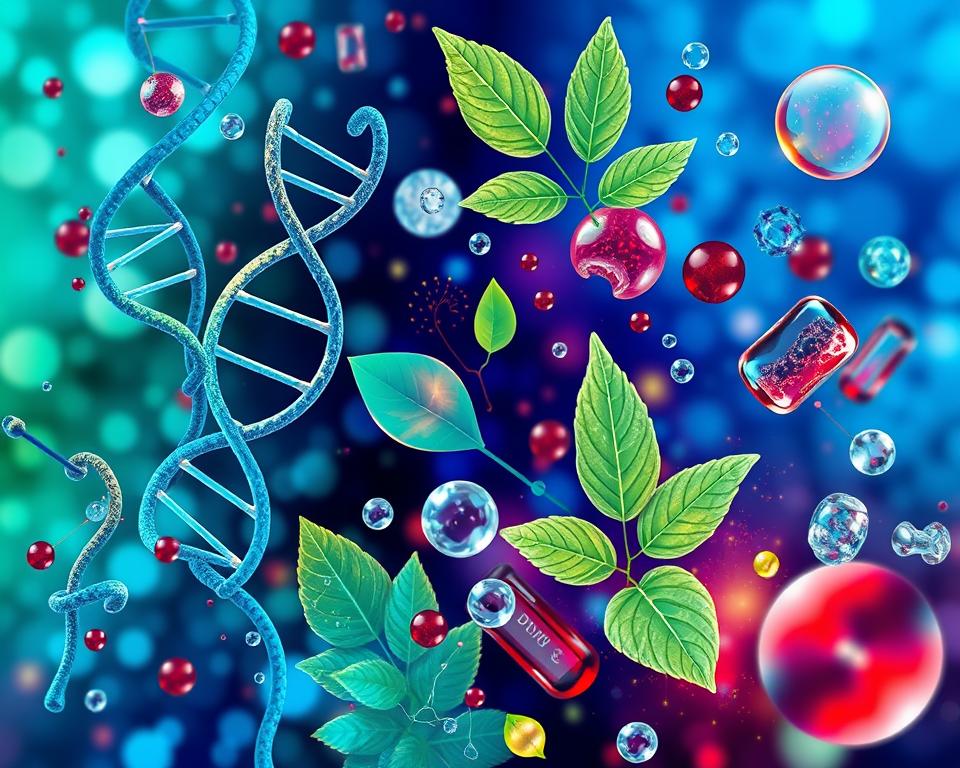
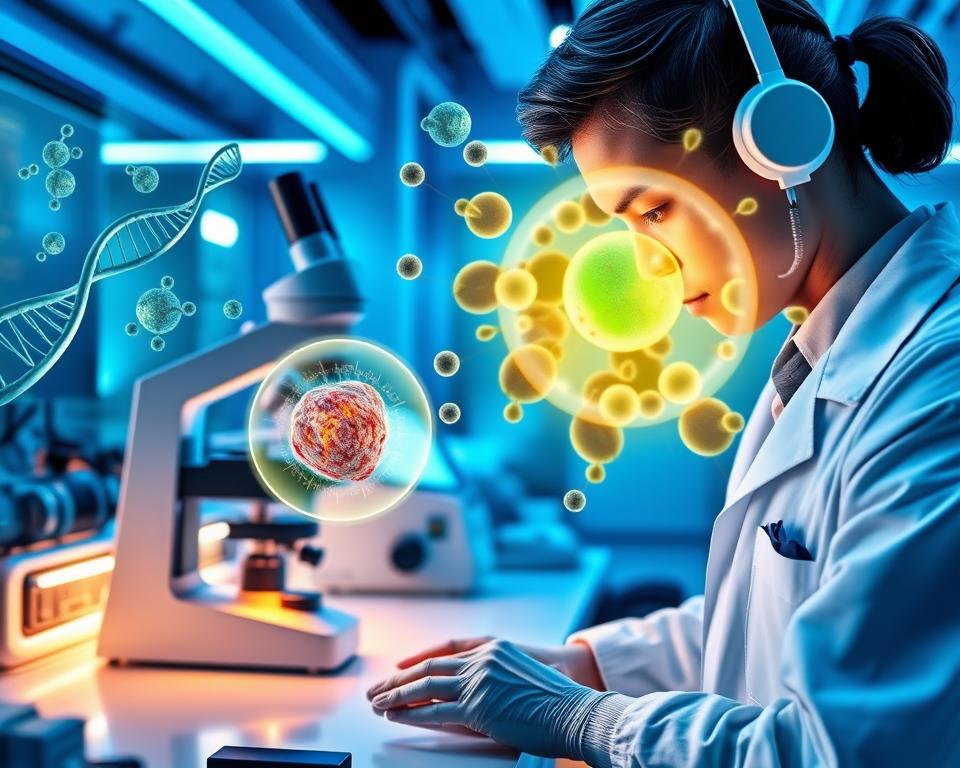
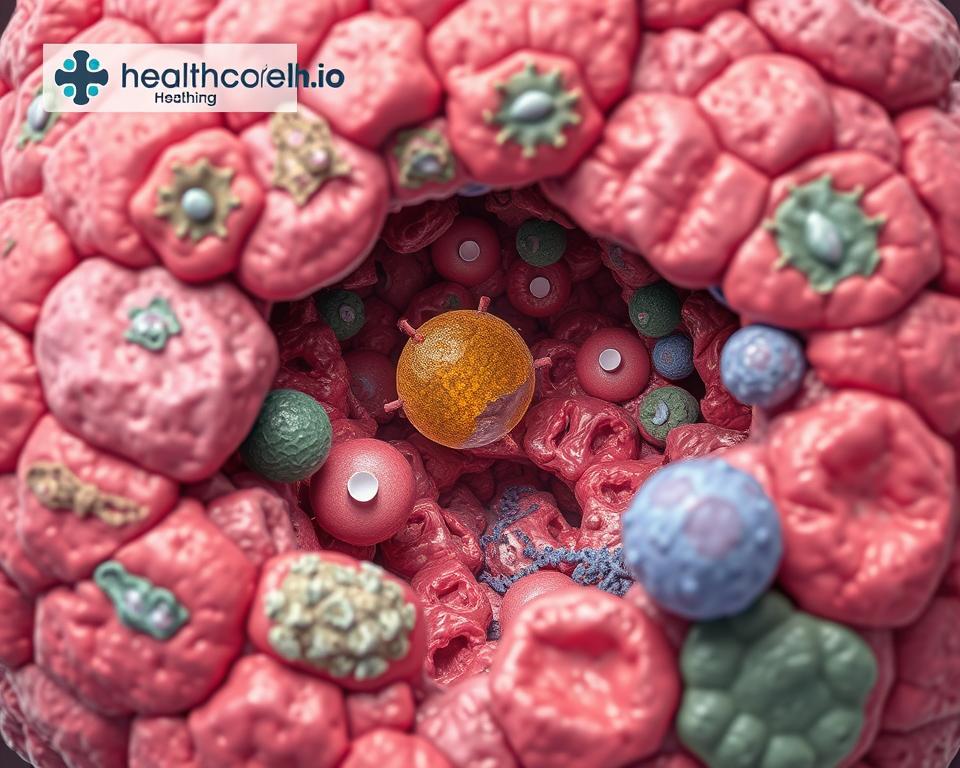
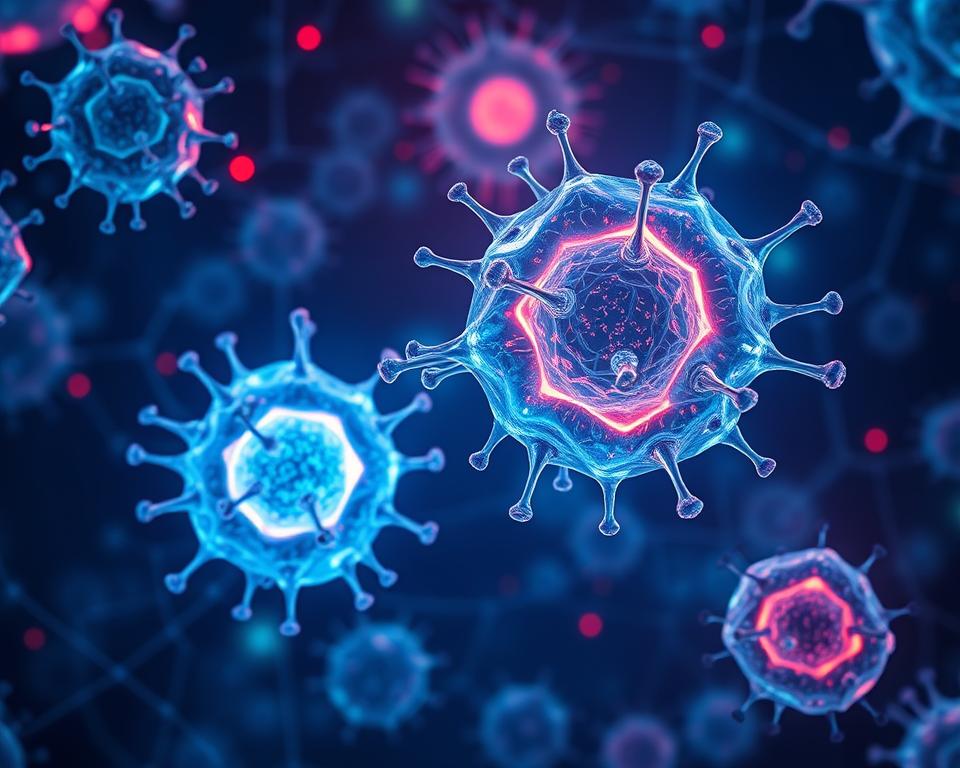



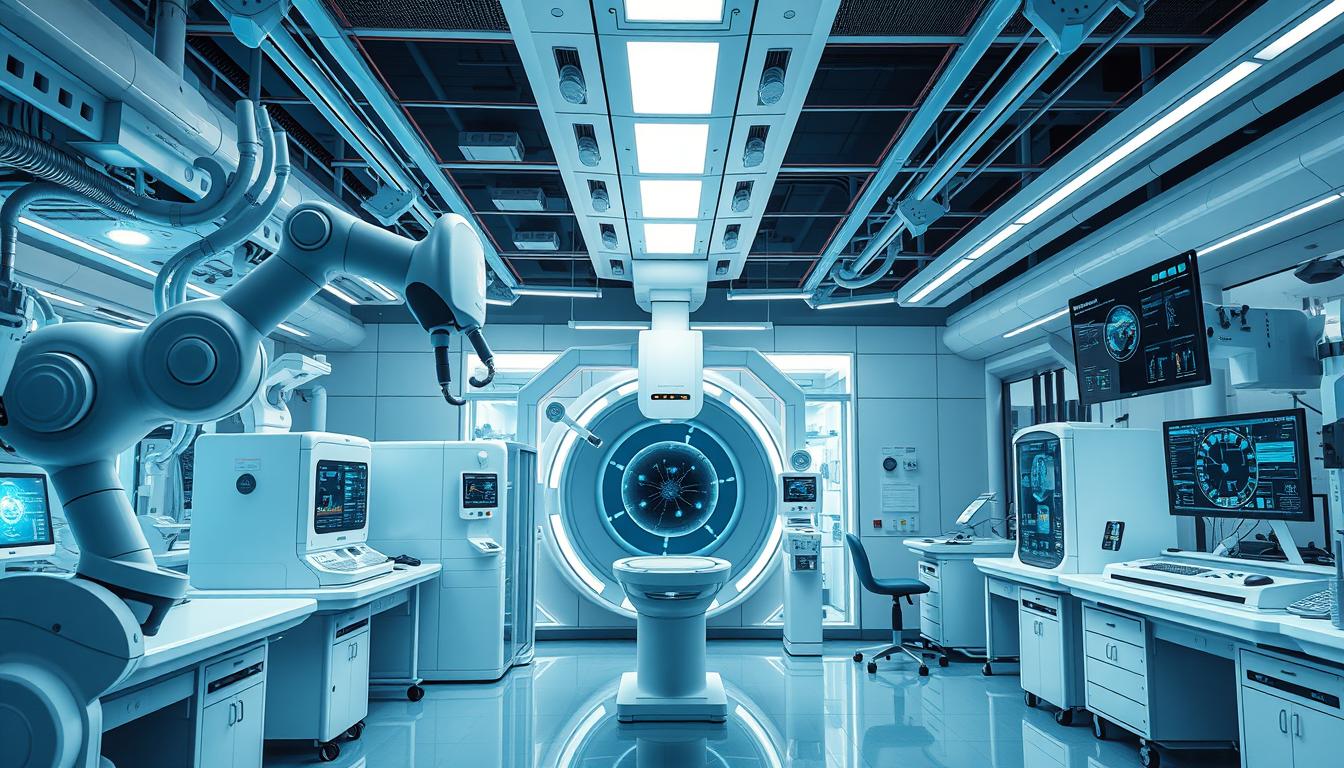
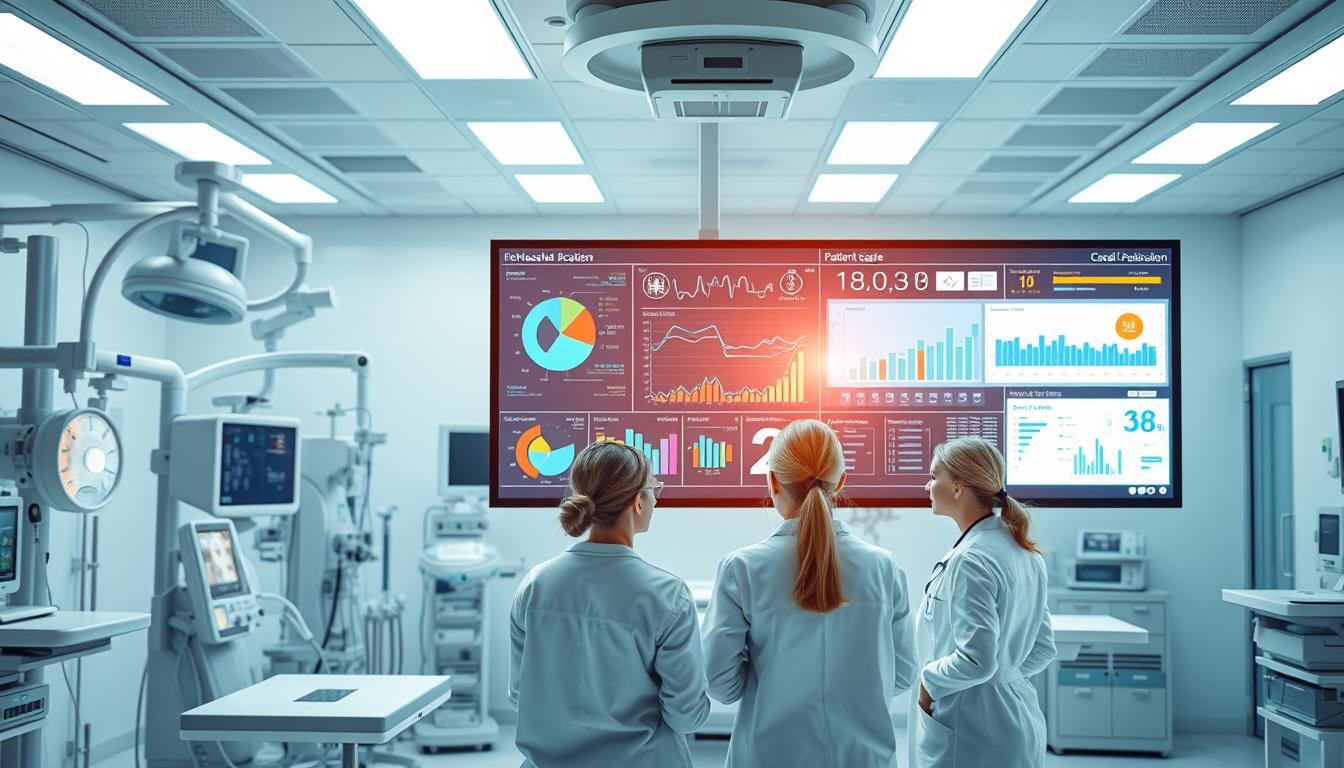
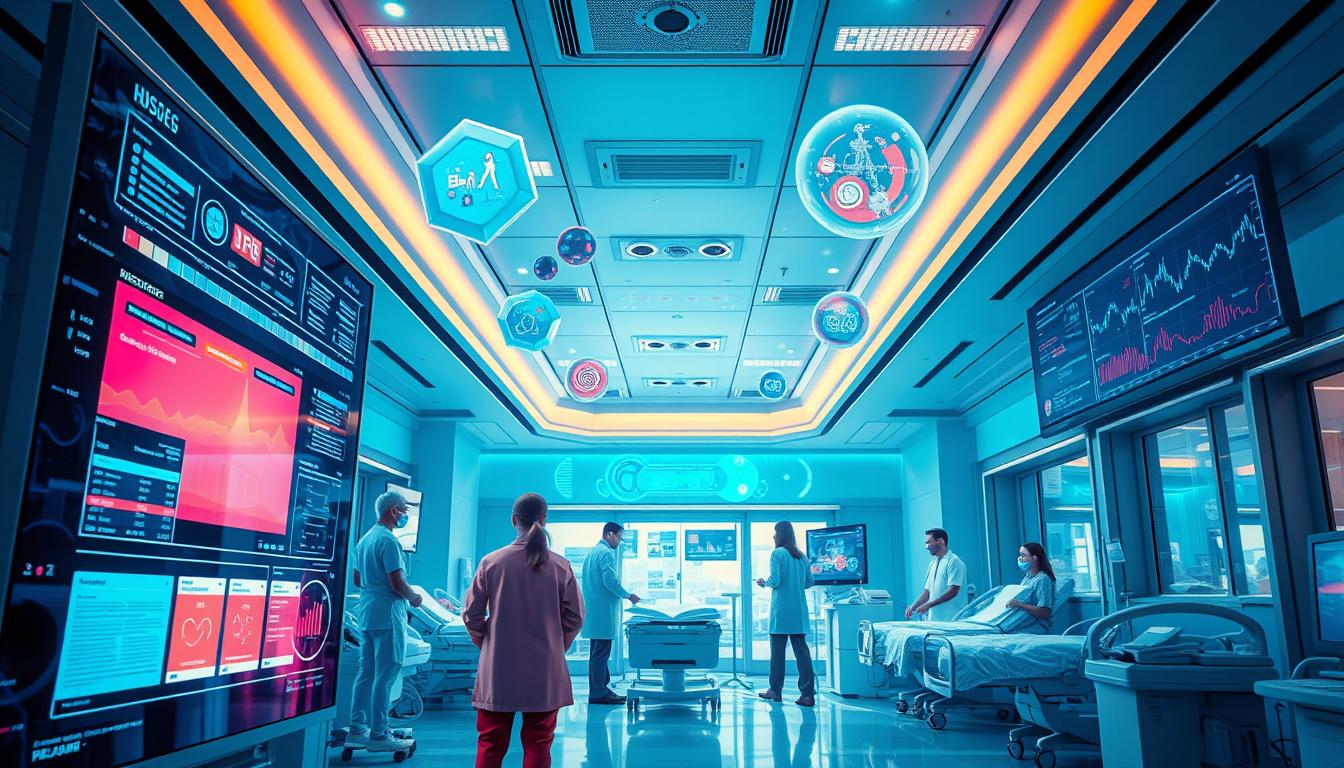
Leave a Reply